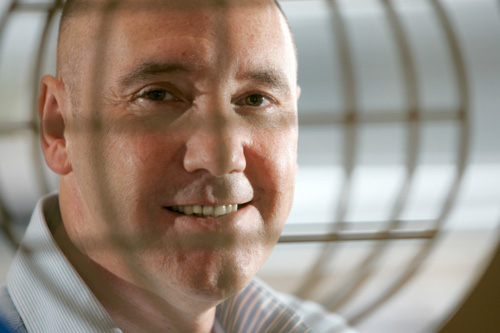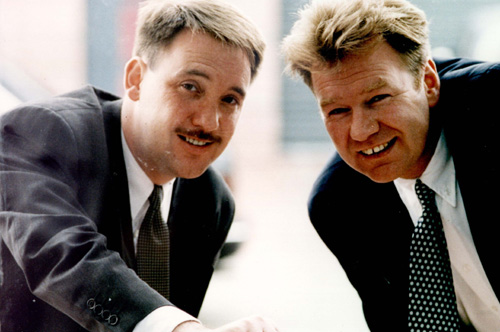Scotland’s largest independent telecoms firm, Commsworld, closed in on its first year of double figure revenues as it celebrated being two decades old.
The firm, which has become a specialist in network, telephony and mobile communication solutions, saw its’ 20th year herald a surge in business growth – at the expense of the sector’s traditional big hitters – that will see it surpass its £9m turnover in 2013.
Ricky Nicol, Chief Executive of the Edinburgh based firm, has seen Commsworld change and diversify significantly since he and his former business partner set it up in late 1994, originally to only provide telephony services.
But, Nicol believes the best is yet to come, as his firm can now boast the only indigenous Scottish network of its type, and it is ready to take advantage of the upturn in the economy and the huge focus businesses now place on network speeds, latency and resilience.
He said: “It’s mind boggling when I look back at the last 20 years, but it fills me with an enormous amount of pride.
“We originally set up from a 500sq ft office and had a turnover of £300,000 in year one. Now, with our three offices in Edinburgh, Glasgow and Aberdeen we have around 10,000sq ft with 51 staff and the products and services we sell are light years ahead.
“We have successfully diversified and continuously evolved to offer leading edge technology and that strategy has paid off.
“I believe we’re now in a fantastic position to attack the big providers and gain a decent portion of market share in Scotland so I’d hope the next 20 years should be even more successful.”
He added: “We think we have got close to hitting £10m turnover in 2014, which would be a wonderful way to mark the anniversary, but even if we don’t we have a lot to celebrate and our staff can take a lot of pride from what they’ve helped build over the years.”
Commsworld was the brainchild of Nicol and Dave McKenzie, his former colleague from Dial Telephone Systems (a Murray International Metal firm).
The firm has acquired a handful of small businesses over the years to evolve its strategy and remain in front of market trends, but Nicol’s passion has remained constant throughout.
He continued: “I’m one of those lucky people in life who enjoys what he does. Back in the 90s I was mad keen on telephony technology and I loved delivering services that made a difference for our customers.
“The services we now deliver to customers through the bespoke internet exchanges we have created can make a far bigger impact. Hearing our clients’ feedback on what it means to their businesses is fantastic.
“However, the big difference for me these days is our own people. Being able to offer more people a rewarding career with a growing business is hugely exciting and that’s the bit that really keeps me going now.
“I’m sure all Chief Execs say it, but the talent I’ve seen join the team has been incredible and I get surprised by the level of delivery every week. We’ve got 51 exceptional people here who all want to work for Commsworld and that makes a big difference for a company our size competing against the big players like BT and Virgin.”
In 2012 Commsworld acquired Fluency, a small internet company run by a young internet ‘guru’ and software developer called Charlie Boisseau, set up in 2010.
This added a key new string to the Commsworld bow as it could now boast a unique network of its own. Nicol believes this is key to the future growth of the firm as more businesses like Veripos and Apex Hotels join the growing list of impressive clients.
He continued: “As an industry, where we are now, I thought we would be ten years ago in terms of technology. However, the whole global telecoms industry has been stifled by massive amounts of debt to build the infrastructure. It has now worked through all that and we’re ideally placed thanks to the Commsworld network.
“Businesses located next to a Commsworld enabled ‘point of presence’ (POP) ‘internet exchange’ can benefit from quicker access to data without it being bounced through servers in London or Manchester, which is the case with more traditional bigger providers – and we’re increasing the number of POPs all the time.
“Our network has been set up to offer increased resilience by using multiple exchanges to deliver information to and from our clients. This means if one exchange should fail there will be a back-up in place.
“We ensure our clients’ applications run smoothly and there is low-latency, which means there is a notable difference in how quickly staff can perform online tasks, therefore increasing productivity and improving customer service.”
He added: “It’s a huge USP for us and it’s opening up doors all over the place. We’ve worked with a number of fascinating clients, some of whom deliver vital services and can’t afford to even contemplate downtime or slow response rates.”



